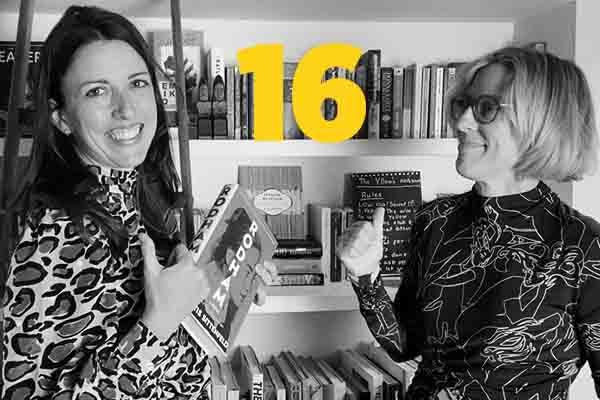The books that make us happy all the time, plus three to try and our current reads

Is it possible to be happy all the time? Maybe it depends on the books we read. This week we've also got three books that have been huge hits in Australia but aren't so well-known here, and the books Laura and I are currently reading.

Happy All The Time by Laurie Colwin
Happy All The Time came highly recommended by two friends-of-the-pod, Chrissy Ryan of North London's Bookbar, and Elizabeth Morris – both women I trust wholeheartedly for a good read. 'I need something fun for our summer reading show', I said, and they unerringly pointed me to this book.
Reader, they were not wrong. As Katherine Heiny, who writes the Introduction, notes, 'seriously wise, seriously wonderful, seriously comic – your life will be richer for it.' Before you've even got to the novel you get this delightful little intro from Heiny (author of enjoyable comedies Early Morning Riser and Standard Deviation, among others) about how she discovered Laurie Colwin thorough one of her short stories, and soon had read everything there was to read. 'I discovered', she writes, 'that Colwin wrote almost exclusively about love, sex and food, and in the thirty years since them, these are still the only subjects I have found worth reading or writing about.'
And so to the plot – the novels follows third-cousins Guido Morris and Vincent Cardworthy, two well-to-do young men with secure jobs who don't need to wonder about their futures and so instead wonder who they will marry. In short order Guido meets Holly Sturgis and falls in love with her elegance, precision and sleek, Japanese hair. Holly meanwhile 'had no ambitions to speak of, except to live nicely from day to day.' She 'could cook, do needlework, play tennis and fish. She had studied the Italic hand, the Carolingian minuscule, and the restoration of paintings and china. She could balance her check book to forty-five cents, make a perfect piecrust, and bandage simple wounds. She could stand on her head, do a swan dive, repair lamps, and knew the collections of most major museums. Guido had once recited this list to Vincent, including the fact that Holly spoke French and Italian. "Does she fly on commercial airlines?" Vincent had asked. "Of course she does. Why?" "Anything short of a transport carrier would crash under the weight of those accomplishments," Vincent had said.'
Vincent in turn works at the Board of City Planning and meets Misty Berkowitz. 'He found her sitting in her office, slumped over her old-fashioned calculator stirring her coffee with a fountain pen. She had amber-coloured hair that fell into her eyes and small gold spectacles that slipped down her nose. She looked bored and misanthropic. The sight of her caused Vincent's heart to leap in an unexpected manner. He poked his head into her doorway and said good morning in a cheery fashion. Misty Berkowitz looked up. "Get the hell away from me," she growled.
One criticism you might level at Colwin is that her characters are drawn from the affluent upper-class, where you might suppose people who don't have to worry about wealth and or job-security might well find it easy to be happy. It's a fair point, but somehow Colwin manages to write about her characters in a way that seems somehow generous, open-hearted and inclusive, so that it feels churlish to grumble. Anyway, Heiny asks, 'what's wrong with writing about the upper class? Are they immune to sorrow? Do people who like roast chicken not feel heartache? Are asparagus-eaters not warmed and cooled by the same winter and summer Aren't we all, every single one of us, seeking love constantly in some form or another.' This is a glass-half-full sort of a book, full of characters who are the best kind of people, the kind that like to try to make life a little nicer for everyone around them. You might have friends like that, or be such a person yourself. Me, I grumble my way through most of my days reading books with dark plots whilst secretly wishing to be in bed asleep (probably some therapy needed there) but I was happy to have my thoughts diverted with a book that suprised and delighted me in equal measure.
Further reading: Early Morning Riser is my favourite of the Katherine Heiny novels that I've read and I reviewed it in newsletter 5. Happy All the Time also made me think of Leonard and Hungry Paul by Ronan Hession, a book that has something of the same quality of celebrating kindness and viewing the world thorough a positive lens (and which I remember more fondly the further I get from the experience of actually reading it). It's a shame that Woody Allen is such a pariah these days (although interesting article about that here), but in the interests of not throwing the baby out with the bathwater my favourite of his films is Manhattan Murder Mystery, in which a couple and their two friends try to solve a crime that may have been committed in their apartment building. It's a film I love not so much for the absurd plot as for the relationships – now I've read her, I think the tone is quite Colwin-esque. See what you think.


